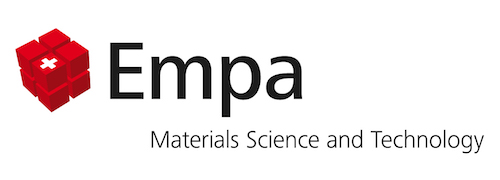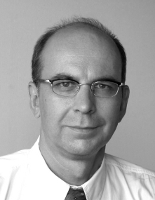
 Energy-autonomous embedded systems and the Internet-of-Things
Energy-autonomous embedded systems and the Internet-of-Things
Objectifs du cours
This course is organized in collaboration with EMPA.
The FSRM discounts don't apply to this course. The course language is English.

During the last two decades we have seen a tremendous rise of opportunities and technology in the areas of sensor technology, data processing and communication, and wireless (as well as wired) network technology. This has lead, together with an on-going trend in miniaturization and integration of sensors and electronics, to the concept - and in part the advent - of the so-called Internet of Things: Small functional units, in most cases wireless electronic sensor systems, are distributed across large environments and serve as distributed network nodes, in order to acquire, process and transmit data in a complex networking fashion. Reaching from consumer and biomedical applications over industrial process control and smart home appliances to environmental sensing and precision agriculture, this Internet-of-Things may span, in a near future, over almost every area of our daily living.
When addressing this topic, every designer, potential supplier or user of this technology will run into complex questions of system design, operation and application, related to the following basic questions :
- How to supply an embedded system node with energy, with mimimum effort in installation, maintenance and cost?
- How to enable a reliable operation of the same, given a limited on-site energy budget and detrimental influences onto e.g. wireless communication ?
- How to operate such systems in different application scenarios with their respective requirements and boundary conditions.
This one-day course will give a basic insight and overview on these three questions, with a focused discussion of energy-autonomous embedded systems, using energy harvesting for their supply instead of costly and maintenance-intensive power grids or batteries. This will continue into concepts of local energy storage, wireless communication and, finally, application-adapted system design. Practical case scenarios and demonstrated applications are shown e.g. for consumer applications, smart home, environmental sensing or industrial process control.
Public cible
Development engineers (electronics, embedded systems, IoT), Product managers in the tech/IoT sector, R&D managers and Intellectual Property managers, Technical project managers, Innovation managers, urchasers of technical systems, Technically experienced decision-makers (C-level, divisional management) University-related specialists (e.g. applied research), Patent-related people.
Contenu
- Energy-autonomous embedded systems and IoT: Introduction, motivation and challenges
- Solar energy harvesting: in-door and out-door photovoltaics
- Thermal energy harvesting: Thermoelectrics
- Mechanical energy harvesting: basics with examples from piezoelectric and electromagnetic generators
- Electronic power management and system control
- Energy storage
- Wireless communication and IoT infrastructure: an overview
- Applications: Environmental sensing
- Applications: Industrial process control
- Applications: Infrastructure monitoring and home automation
- Applications: Consumer, IoT, wearables and biomedical
Enseignant(s)

Prof. Dr. Peter Woias, Albert-Ludwigs-University of Freiburg, Dept. of Microsystems Engineering, Germany.
Prof. Dr. Peter Woias graduated in electrical engineering at the Technical University of Munich in 1988. He also received his doctorate from the TU Munich, working on the application of Ion Sensitive Field Effect Transistors (ISFETs) in flow injection analysis.
He has started his post-doc career at the Fraunhofer Institutes for Solid-State Technology and for Microelectronic Circuits and Systems, both in Munich, as group manager and, later, head of the department Micromechanics, Actuators and Fluidics. During this time he was directing basic and industrial research on various microfluidic devices and systems, like, e.g. micropumps, microvalves or micro flow sensors.
Since 2000 Peter Woias is a full professor and head of the Laboratory on Engineering Design of MEMS at the Dept. of Microsystems Engineering (IMTEK) of the Albert-Ludwig-University Freiburg. His actual research focuses on microfluidics for medical applications, chemical micro process engineering, micro energy technology and microfabrication. Peter Woias is a member of the German associations of electrical and industrial engineers (VDE and VDI).
In 2003 and 2004 he was chairman of two SPIE Conferences on “Microfluidics, BioMEMS and Medical Microsystems”, both held in San Francisco, CA. In 2007 he was chair of the technical program committee of the PowerMEMS 2007, held in Freiburg, Germany. Since then, he is a member of the international steering committee of the PowerMEMS conference series. Peter Woias was a winner of the 2003 German BMBF competition “Innovation in medical technologies”, has been appointed with the Robert T. Knapp award of ASME in 2005 and has been awarded with the Helmholtz-Price of the German Physical Society in 2020. From 2006 to 2017 he has been the executive speaker of the German research training group GR 1322 “Micro Energy Harvesting”. He has been a member of the German Cluster of Excellence “Brain-Links – Braintools (2012-2019) and is, at the moment, member of the Cluster of Excellence livMatS, where he directs research area A named “Energy Conversion and Storage”.
His own research in energy harvesting is on piezoelectric, triboelectric, electret and thermoelectric generators, on power management electronics and on energy-autonomous embedded systems.
| Date et Lieu (jj.mm.aaaa) | Ce cours n'est pas agendé en ce moment. Veuillez nous contacter en cas d'intérêt |
| Coût (EARLY BIRD) | CHF 690.00 |
| Coût | CHF 690.00 |
| Langue | English |
| Inscription | Deux semaines avant le cours |
| Organisation | FSRM, Fondation suisse pour la recherche en microtechnique |
| Informations et inscription | Gilles Delachaux, FSRM, e-mail: fsrm@fsrm.ch |